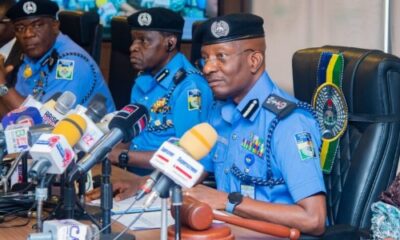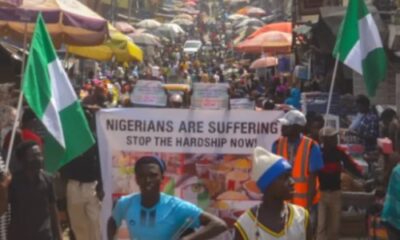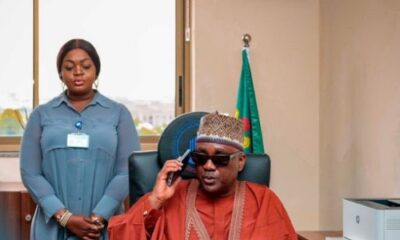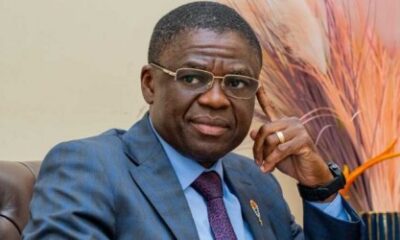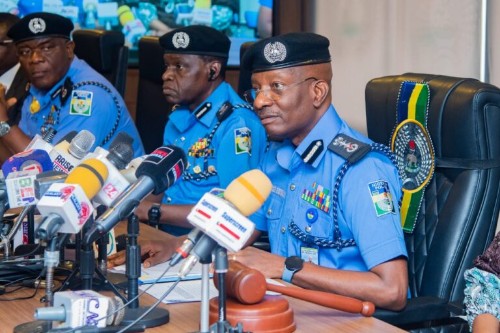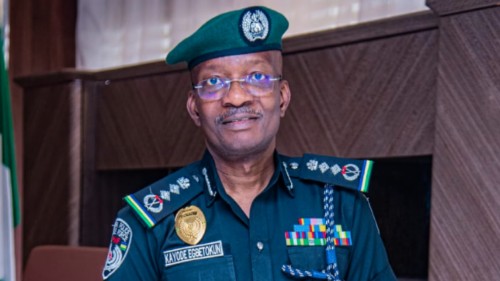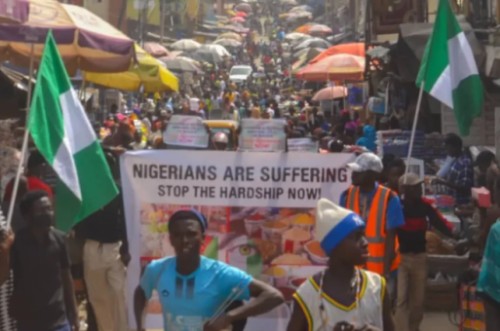Organised labour, comprising the Nigerian Labour Congress (NLC) and Trade Union Congress (TUC), has made a fresh demand of N615,000 as the new minimum wage for workers in the country.
According to The Punch, an impeccable source, who is an executive of organised labour, under anonymity, said that the new wage of N615,000 monthly was reached after consultations by the NLC and TUC.
The source, who was a member of one of the sub-committees set up by the government to work on getting a new minimum wage for the country, however, said the wage might still increase, following the recent hike in electricity tariff.
Furthermore, the source said, “We (NLC and TUC) have given our figures to the government (on the minimum wage), and it is N615,000. That is the position of the NLC and TUC on the matter. The government has been informed as well.”
President Bola Ahmed Tinubu, through Vice President Kashim Shettima, had on January 30, set up a 37-member panel at the Council Chamber of the State House in Abuja.
With its membership cutting across federal and state governments, the private sector, and organised labour, the panel was tasked with recommending a new national minimum wage.
At the inaugural meeting of the panel, Shettima urged members to ‘speedily’ arrive at a resolution, and submit their reports early as the current N30,000 minimum wage expired at the end of March 2024.
Chairing the panel is a former Head of the Civil Service of the Federation, Bukar Aji, who, at the inauguration ceremony, affirmed that its members would come up with a ‘fair, practical, implementable and sustainable’ minimum wage.
The inauguration followed months of agitation from organised labour over the FG’s failure to inaugurate the new national minimum wage committee as promised during negotiations last October.
From the government’s side, members include the Minister of State for Labour and Employment, Nkeiruka Onyejeocha, representing the Minister of Labour and Employment; Minister of Finance and Coordinating Minister of the Economy, Wale Edun, who was represented by the ministry’s permanent secretary, Lydia Jafiya; the Minister of Budget and Economic Planning, Atiku Bagudu; Head of the Civil Service of the Federation, Dr Yemi Esan; and Permanent Secretary, GSO/OSGF, Dr Nnamdi Mbaeri, among others.
Representing the Nigeria Governors Forum are Mohammed Bago of Niger State, representing the North Central; Senator Bala Mohammed of Bauchi State, representing the North East; Umar Radda of Katsina State, representing the North West; Charles Soludo of Anambra State, representing the South East; Senator Ademola Adeleke of Osun State, for the South West; and Otu Bassey of Cross River State, on behalf of the South-South.
From the Nigeria Employers’ Consultative Association is the Director-General of the association, Adewale-Smatt Oyerinde; Chuma Nwankwo, Thompson Akpabio; as well as members from the Nigeria Association of Chambers of Commerce, Industry, Mines and Agriculture, including Michael Olawale-Cole, Ahmed Rabiu, and Humphrey Ngonadi.
From organised labour, the Nigeria Labour Congress is represented by its president, Joe Ajaero; as well as President of the TUC, Festus Osifo; and his deputy, Tommy Etim-Okon, among others.
Ajaero had announced N1m as the new minimum wage, owing to the rising inflation in the country which, according to him, had pushed many of his members into poverty.
This led to several controversies, with some experts stating that the wage was unrealisable or sustainable.
However, in an interview with one of our correspondents, another labour leader stated that the NLC and TUC had pegged the new wage at N615,000 tentatively.
Asked if the May 1 deadline was still on course, the labour leader said, “What I want you to know is that we are doing our best. Both the TUC and NLC have harmonised, and they have sent their position to the government.
“We are in the process. Be assured that once anything happens, I will, as usual, inform you. That is all I can tell you for now, because we have not met; even though we have submitted our unified positions to the Federal Government. We will be speaking with one voice.
“But, let me also hint you that with the removal of the electricity tariff subsidy, we are going to have another round of serious conversations with the government. Mind you, the tariff increase is also very good for us, because they (the government) did it when the new minimum wage process had not been concluded. So, it is going to be a good ground for us to ask for more.
“Our position will be defended based on the new price of N225 per kWh of electricity. Although we (the government and Labour) are not in agreement, we are waiting to meet and decide on the next point of action.”
The source added, “This is because if you look at the Electricity Act, it canvassed a position that before any increase at all, there must be stakeholders’ engagement. However, the Nigerian Electricity Regulation Commission unilaterally imposed the removal of the electricity tariff on the consumers, without recourse to stakeholders. That is in total defiance to the provisions of the Act.
“These are the issues that will be in the front burner of our next negotiation with the Federal Government.
“The new tariff will also give us another strategy to press the government on the need to move the minimum wage upward. This is because the government has not announced any new minimum wage yet, as we are still negotiating.
“As I said, the NLC and TUC have harmonised positions, which we have sent to the government. It is even now that the negotiation will start properly. All that we have done so far was to try to lay the foundation, and now that we have come up with our positions, the government will also come up with their own. We will then start a fresh negotiation.”
Reacting, a professor of Economics at the Olabisi Onabanjo University, Ogun State, Sheriffdeen Tella, said, “If internationally, they say there is poverty in Nigeria, what they mean is that Nigerians are earning less than two dollars per day. If you want to fix the minimum wage to end poverty, what you should do is fix the minimum wage above that.
“Whatever the labour unions have presented to the Federal Government is for negotiation and to serve as a benchmark. It is left for the Federal Government to negotiate.
“There is a law that has been established to make them comply. But, they (state governments) decide to flout the law. When it is agreed as minimum wage, that is what the private and public sectors should pay. If they don’t pay, they should be taken to court.”
A professor of Microeconomics at the University of Ibadan, Oyo State, Adeola Adenikinju, noted that while the Federal Government would bear a significant burden, it was imperative to recognise the involvement of state governments and the private sector in the implementation of the new minimum wage.
Adenikinju, who is also the President of the Nigerian Economic Society, harped on the importance of acknowledging the diverse economic landscapes across states, suggesting that a uniform minimum wage might not be feasible, due to varying levels of affordability.
He said, “The proposed minimum wage by the NLC should be looked at. It is not only the Federal Government that is going to pay this. The state government and private sector are also involved.
“It must be noted that the minimum wage varies by state, as some states are richer than others.”
In a similar vein, another economist, Paul Alaje, explained that there was a high possibility of President Bola Tinubu declaring between N100,000 and N200,000 as the minimum wages for both the private and public sectors if the exchange rate of naira improved to N1,000 per dollar by May.
He added that 30 out of the 36 states would struggle and might not align with the payment of the new minimum wage if it was pegged at N615,000.
According to him, getting special assistance from the Federal Government and intervention funds from international communities should be tied to states having zero clearance of previous salaries.
He also stated while the proposed minimum wage might not be so much of a challenge for the Federal Government and six states, the other 30 states will struggle to pay that amount.”
Credit: The Punch
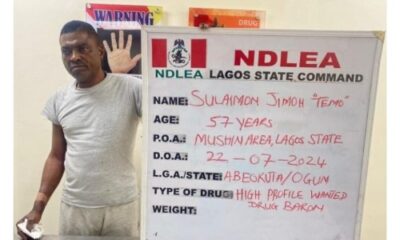
 BIG STORY3 days ago
BIG STORY3 days ago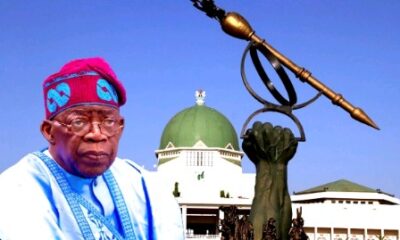
 BIG STORY4 days ago
BIG STORY4 days ago
 BIG STORY5 days ago
BIG STORY5 days ago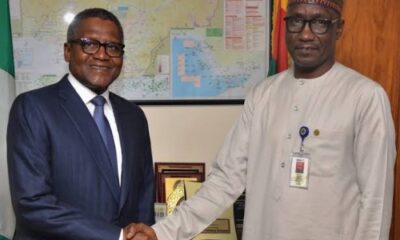
 BIG STORY4 days ago
BIG STORY4 days ago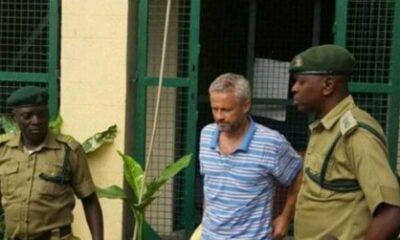
 BIG STORY5 days ago
BIG STORY5 days ago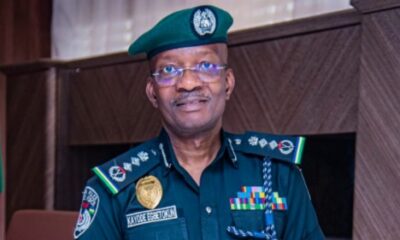
 BIG STORY13 hours ago
BIG STORY13 hours ago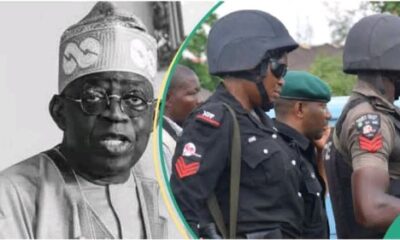
 BIG STORY4 days ago
BIG STORY4 days ago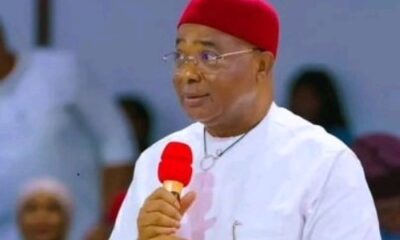
 BIG STORY2 days ago
BIG STORY2 days ago






